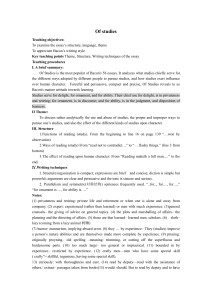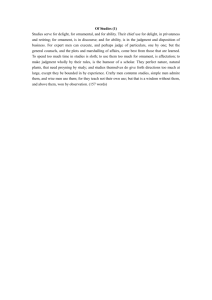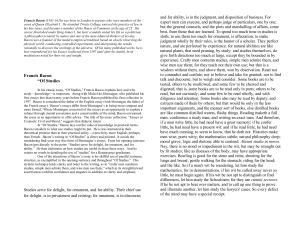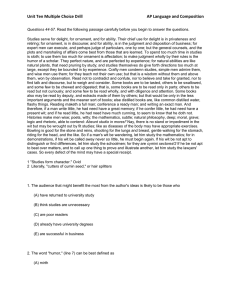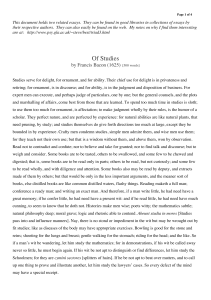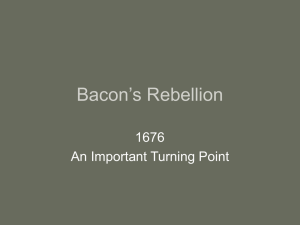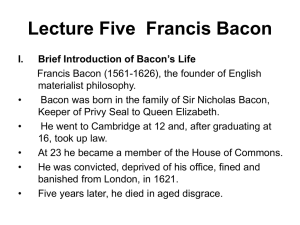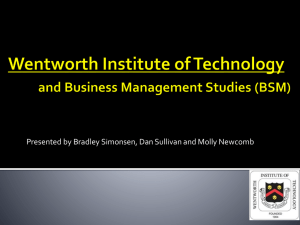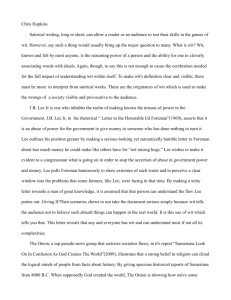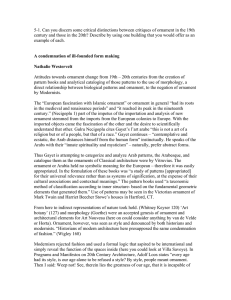of studi es
advertisement
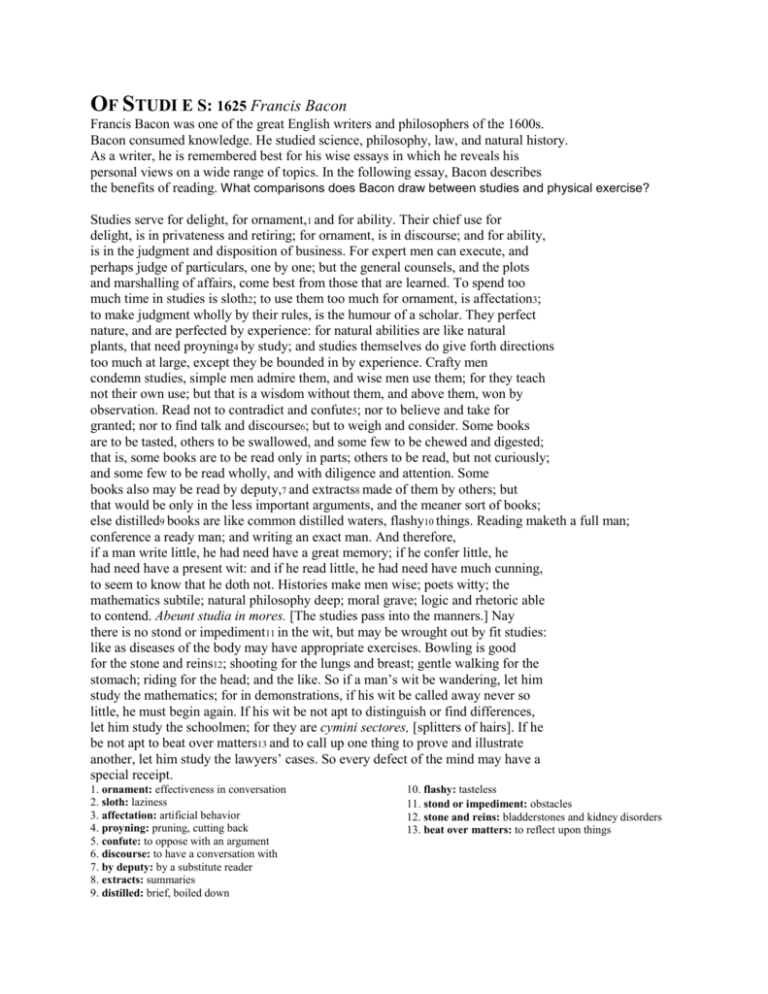
OF STUDI E S: 1625 Francis Bacon Francis Bacon was one of the great English writers and philosophers of the 1600s. Bacon consumed knowledge. He studied science, philosophy, law, and natural history. As a writer, he is remembered best for his wise essays in which he reveals his personal views on a wide range of topics. In the following essay, Bacon describes the benefits of reading. What comparisons does Bacon draw between studies and physical exercise? Studies serve for delight, for ornament,1 and for ability. Their chief use for delight, is in privateness and retiring; for ornament, is in discourse; and for ability, is in the judgment and disposition of business. For expert men can execute, and perhaps judge of particulars, one by one; but the general counsels, and the plots and marshalling of affairs, come best from those that are learned. To spend too much time in studies is sloth2; to use them too much for ornament, is affectation3; to make judgment wholly by their rules, is the humour of a scholar. They perfect nature, and are perfected by experience: for natural abilities are like natural plants, that need proyning4 by study; and studies themselves do give forth directions too much at large, except they be bounded in by experience. Crafty men condemn studies, simple men admire them, and wise men use them; for they teach not their own use; but that is a wisdom without them, and above them, won by observation. Read not to contradict and confute5; nor to believe and take for granted; nor to find talk and discourse6; but to weigh and consider. Some books are to be tasted, others to be swallowed, and some few to be chewed and digested; that is, some books are to be read only in parts; others to be read, but not curiously; and some few to be read wholly, and with diligence and attention. Some books also may be read by deputy,7 and extracts8 made of them by others; but that would be only in the less important arguments, and the meaner sort of books; else distilled9 books are like common distilled waters, flashy10 things. Reading maketh a full man; conference a ready man; and writing an exact man. And therefore, if a man write little, he had need have a great memory; if he confer little, he had need have a present wit: and if he read little, he had need have much cunning, to seem to know that he doth not. Histories make men wise; poets witty; the mathematics subtile; natural philosophy deep; moral grave; logic and rhetoric able to contend. Abeunt studia in mores. [The studies pass into the manners.] Nay there is no stond or impediment11 in the wit, but may be wrought out by fit studies: like as diseases of the body may have appropriate exercises. Bowling is good for the stone and reins12; shooting for the lungs and breast; gentle walking for the stomach; riding for the head; and the like. So if a man’s wit be wandering, let him study the mathematics; for in demonstrations, if his wit be called away never so little, he must begin again. If his wit be not apt to distinguish or find differences, let him study the schoolmen; for they are cymini sectores, [splitters of hairs]. If he be not apt to beat over matters13 and to call up one thing to prove and illustrate another, let him study the lawyers’ cases. So every defect of the mind may have a special receipt. 1. ornament: effectiveness in conversation 2. sloth: laziness 3. affectation: artificial behavior 4. proyning: pruning, cutting back 5. confute: to oppose with an argument 6. discourse: to have a conversation with 7. by deputy: by a substitute reader 8. extracts: summaries 9. distilled: brief, boiled down 10. flashy: tasteless 11. stond or impediment: obstacles 12. stone and reins: bladderstones and kidney disorders 13. beat over matters: to reflect upon things
